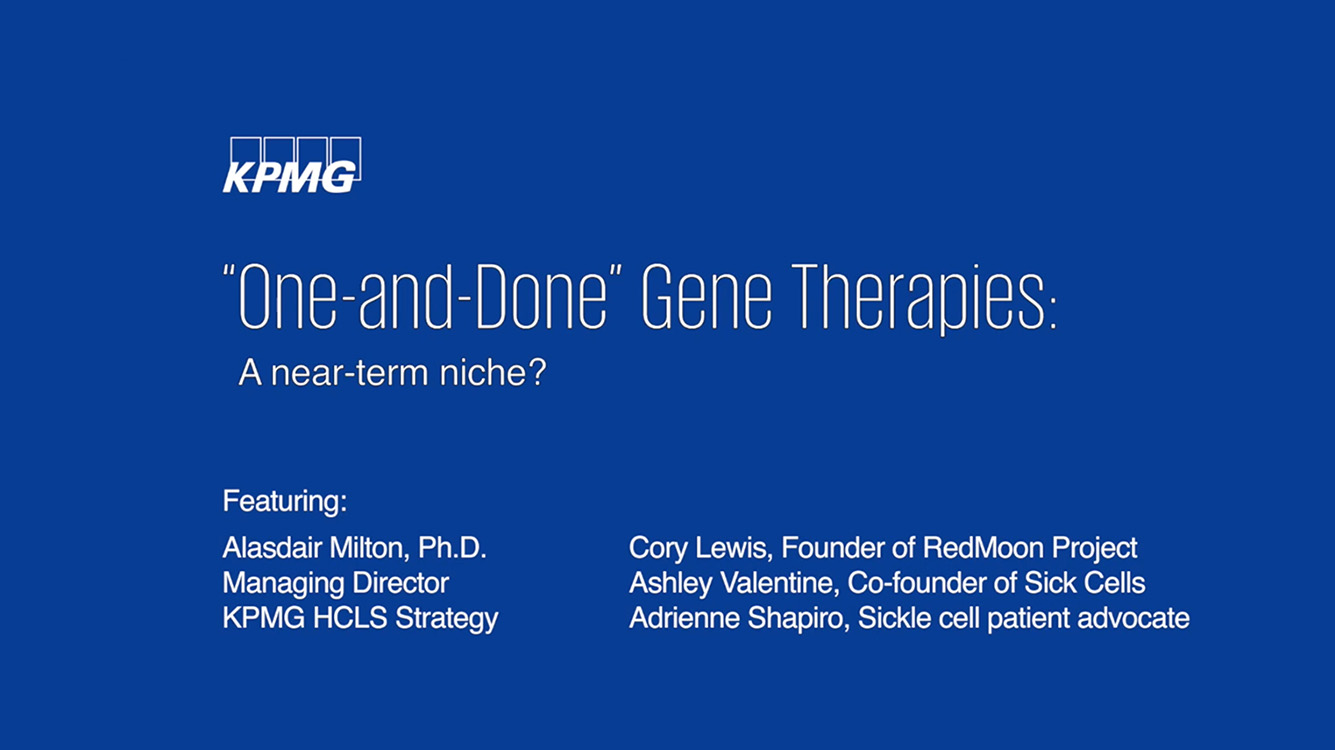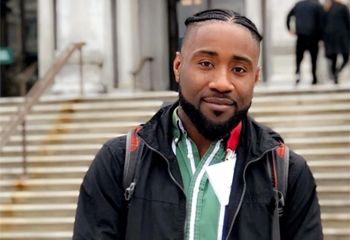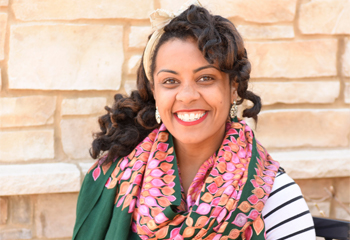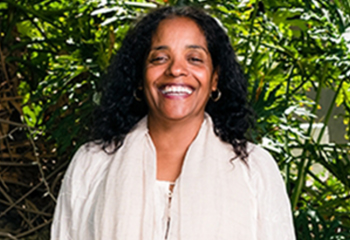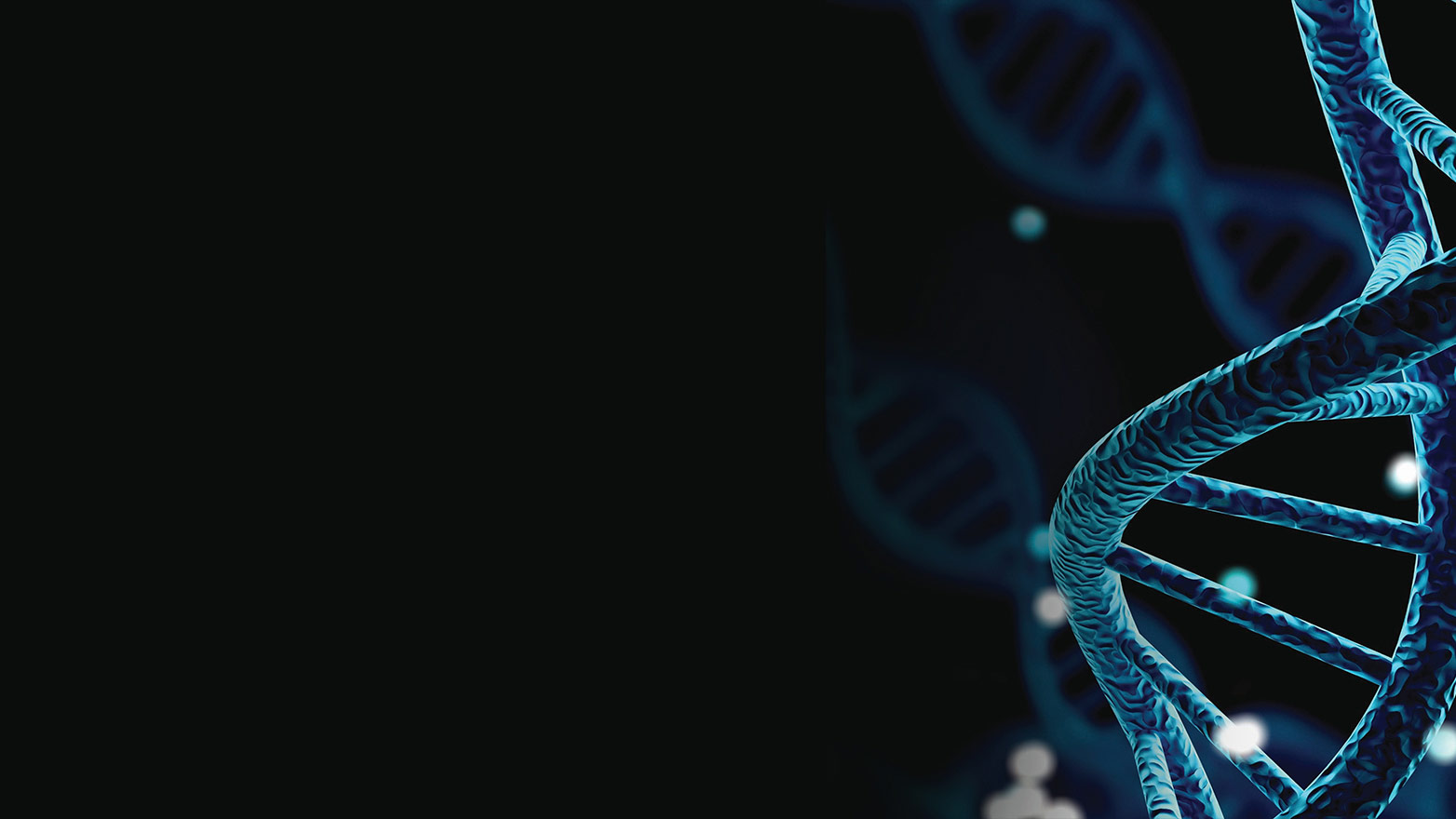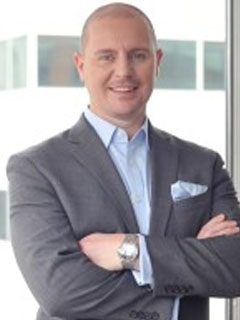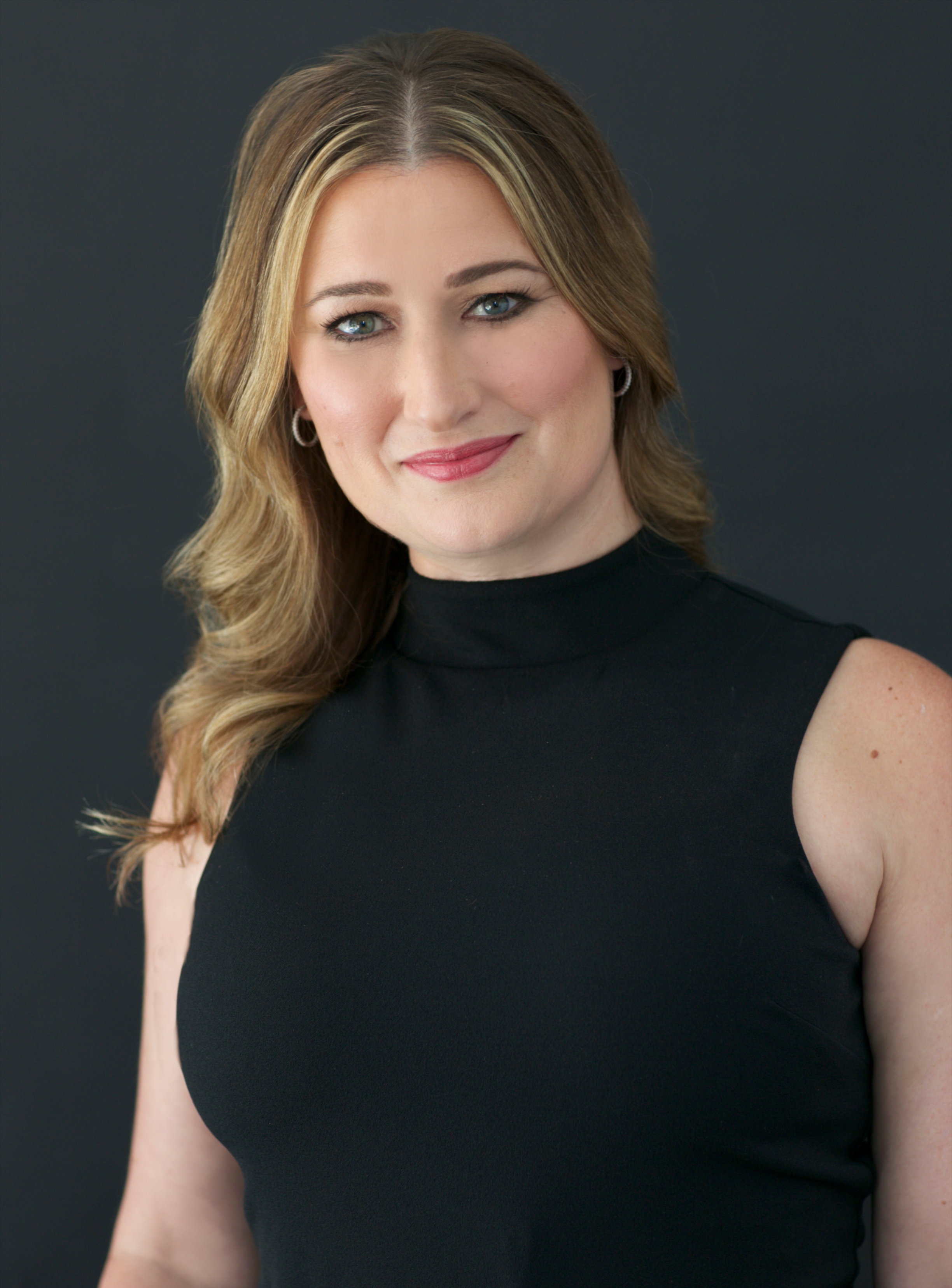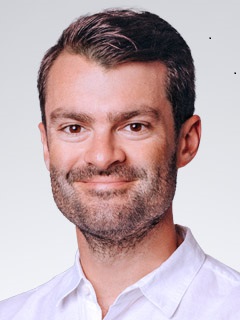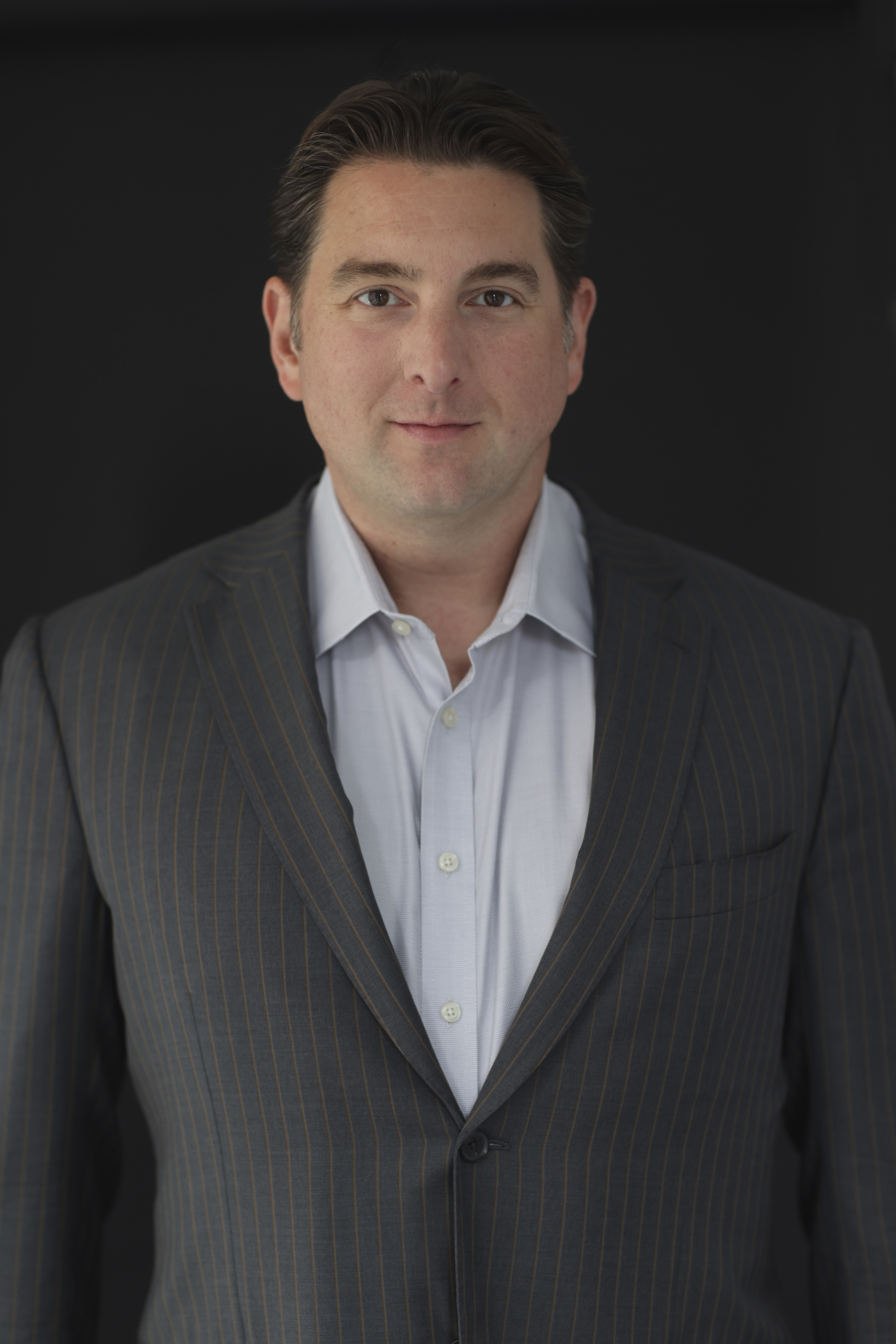Video transcript
Interview Transcript with Cory Lewis, Ashley Valentine and Adrienne Shapiro
Alasdair Milton, PhD: Thanks for joining today. It's my absolute pleasure to be speaking to three individuals from the Sick Cell community. First, Cory Lewis, who is a Sick Cells warrior, and we're going to discuss more on that terminology specifically once we come to some questions for Cory.
Cory is based in Georgia and he has his own patient advocacy group for Sick Cells disease called the Redmoon project. I'm also joined by Adrian Shapiro, who has been a long-time advocate for Sick Cells disease and who is the fourth-generation mother to have a child born with Sick Cells disease. And finally, Ashley Valentine, who, as a cofounder of Sick Cells, an advocacy group for Sick Cell disease.
Welcome everyone. Thank you so much for your time. I think this will be a fascinating conversation. First of all, Ashley I want to just start with you. If you can just give the folks watching this video a little bit of background to Sick Cell disease and start discussing difference between Sick Cell trait, Sick Cells disease, and then talk a little bit about some standard care and for the disease and how that's evolved over the last few years.
Ashley: I'm happy to talk about Sick Cells disease and implications on the family. I am Ashley Valentine, I'm a co-founder of Sick Cells and the other co-founder is and will forever be my brother, Marcus Valentine. Marcus unfortunately passed away on June 22nd of 2020 from a stroke, which is unfortunately a common complication of Sick Cells disease. To understand why that happens, Sick Cells is a hematological disease. It's a blood disorder. And so how the red blood cells are shaped like donuts and circles, and they carry oxygen to all parts of your body. But with Sick Cells, the blood cells are half-moons or are shaped like sickles and they don't carry oxygen to the body. And they cause blockages and reduce circulation. So anywhere in your body, that's not getting oxygen leads to death of that particular body part.
For people with Sick Cells, the hallmark tail is Sick Cells is excruciating pain. It's a very painful disease. And there really aren't treatments to treat the pain apart from Opioids. We recently got a treatment approved in 2019 to help with the pain in Sick Cells disease, but it's still not... You go into pain. You receive this therapy. It's a long-term treatment. Some other complications of Sick Cells disease are bone death. So something called avascular necrosis, there's strokes that can lead to seizures in lifetimes, leg ulcers, heart conditions. Many people with Sick Cells don't have their spleens, or they have enlarged spleens or can be kidney problems. So this one root cause of the destruction of these cells leads to a multi-system comorbidities. It leads to all these other conditions that people have to live with Sick Cells disease.
But you know, the kicker about Sick Cells is that it's invisible until the disease physically starts to break down in your body. So, unfortunately, even though this is a severe disease, science has not kept up with the disease and it's left the patients and the population to defend itself out in society. And because we kind of look the way we do, unfortunately we receive more consequences of our racial makeup than people understanding that this is a severe condition. And to your point about the difference of Sick Cells disease and Sick Cells trait. I just talked a lot about what is Sick Cells disease. Adrian, would you like to kind of talk more about what is Sick Cells trait?
Adrienne: Sure, being a trait carrier. So we all know you inherit your DNA from mom and dad, right? And if you were trait carrier, one of your parents has given you an adult normal Sick Cells. I'm sorry, a normal gene, for your blood. The other one has passed along either C or S. So that child has a 50% of their blood makes normal blood cells and 50% make some form of sickling cell. And that's how you end up with trait. You then have that ability when you are having another... your child passing along, either that sickle trait or your adult trait. You may have a child with someone who is also a trait carrier, you have in each pregnancy, a one in four chance for that child to have Sick Cells disease. Your children will either have Sick Cells disease or they will have the trait carriers, or they may be fortunate like Ashley was and end up making both normal cells.
There is a test. I had the test a long time ago and it was a cheap test. So I had a false negative. And at that point we didn't even know that Cubans carried Sick Cells trait. I married a Cuban, had a child, and we were all shocked. So we've learned a lot more about trait. Also lots of studies now on the effects of having trait. For many years, we thought there wouldn't be any, but if up to 50% of your cells are not... blood cells are not behaving normally, there's got to be some effect in it. So we think it's very, very important that you know your status.
Alasdair Milton, PhD: Ashley, I think there's a sense that within medicine, there should be a quality of care, but that's not the case. And I wonder if you could just give us a little bit of your perspective on some of the racism that African-American patients have suffered over the years and how that's kind of affected the way you think about your engagement with the medical community and with Science more broadly.
Ashley: Sure. So race has been impacting science forever. Race has been impacting every part of society ever. I just think in the past few years, the rest of society has opened their eyes and they can see it. This is something that we've experienced every day in Sick Cells. There's plenty of studies out there, how racism has impacted Sick Cells. I don't want to speak for the rest of society because I know Sick Cells the best, but it's things like value. Who deserves new treatments, who deserves to be taken care of, eugenics or the theory that black people have tougher skin, so they don't need as many pain medications or they're faking. Lots of times Sick Cells patients are described as drug addicts instead of being people that need help.
So there's a lot of examples and I think we don't have enough time to really get into that. I think that would be a whole conversation of the impacts of racism in health care. But what I do know for Sick Cells disease is that this community has been around forever. The disease was discovered over 120 years ago. We just got new therapies to treat it three years ago, and patients still can't get access to those therapies. Progress is being made. But I think if anyone is interested in learning about the impacts of racism on health care, talk to someone with Sick Cells disease because we have to engage with healthcare no matter how people treat us, no matter how we're perceived, no matter how many terrible experiences or fantastic experiences, we have no choice, but to work with healthcare, to live in a healthcare system, despite our best wishes. So we've learned how to do that. We've created relationships with some of our providers.
Honestly the day Marcus passed away, it was during Corona Virus. None of our family could get in, but we had a hospital family because we had built those relationships and people really really cared about us. So we had to build that ourselves. That can be a whole topic that we could talk about. But I think Sick Cells is somewhere to start if people want to understand the long-term impacts of racism, discrimination, prejudice, injustices in healthcare.
Alasdair Milton, PhD: Can you expand on that a little bit? I mean, what kind of challenges have you seen when you've been engaging with the medical community?
Ashley: Cory, maybe you can talk about your experience at a drug utilization review board meeting. What happens as for example, we get new treatments, but then it's left to an individual to rely on their prejudice or their preconceived notions of us as, as people who decides that we have access to new treatments or not.
Cory: I definitely can add on because I went to their meetings. And then also just watching the politics in Georgia alone, I'm starting to realize they like to close the doors. They don't have to keep the door open. So that is a big issue, just really having that patient commenting period and just having that standing period for a patient to really have some type of input on the medication. I feel like it's very important, but we don't get that a lot. And just last year, just because they had another medication that was available, the commenting period was not really open to anyone. And then we have to go sift into look for this information to just be able to be the one commenting. So it's just kind of like, why is it so hard to get a say on something that could potentially affect me? I feel like it just needs to be opened more and it doesn't happen. It doesn't happen.
Alasdair Milton, PhD: Cory, you described yourself as a Sick Cells warrior. Can you just expand a little bit more for folks who are watching this? Why do you describe yourself that way?
Cory: I call myself a Sick Cells warrior because growing up and having Sick Cells... I have a Sick Cells SC and in my case is, it can be severe, but it's not as severe as others. So it really is preventative care in my case. That's what really works for me. However, I say a Sick Cells warrior because we fight stigmas every day from discrimination to not getting the proper healthcare from different doctors or hospitals, physicians and then even just the fight you got to deal with when you go to school, when you're at work. I feel like a lot of Sick Cells patients go through this daily. And that puts a lot on them mentally as well. So I think, just having to battle all of those things at one time every day, that's a warrior. That's somebody who is literally fighting for their life to make every day a better day. I don't know how else to put it. I think that's the best term for Sick Cells patients that are fighting to make sure they live a good life.
Alasdair Milton, PhD: That's really interesting. Adrienne. I want to just turn to you for a second. I said in the intro, you're a fourth-generation mother who's had a child born with Sick Cells disease. We talk about the impact on the patient themselves, but there's a real impact on the caregiver and the broader family. Can you give everyone a kind of perspective on that?
Adrienne: Having lived as a caregiver all my life, as my elder brother, like Ashley, had Sick Cells disease. You are making so many decisions that just a normal family doesn't have to make. I mean, you're a person. Your job is to keep your warrior alive and keep your warrior out of pain. And so even as a young child, I remember, we all had that, if it was cold outside and we weren't cold, we had to wear as much clothing as my brother did. We had to know how much water he had every day. So we had a system of counting how many little containers he had and it was just like, oh, he's finished one. We got to refill it and put it back so that we can keep it... keep him.
He was the center of our family. And I always thought that when I got my daughter's diagnosis, that of all the family members, I was probably the best suited to have a child with the disease. It impacts you in so many ways. You get that diagnosis and nothing, not one decision you make from that point on, is not made, unless it goes first to that lens of Sick Cells. And that's where you live, how you go to school. If you can have a job, what kind of job you can have? What do you say or how do you manage relatives who are just tired of your child being sick and tired of you being tired and tired of you not being able to keep your word to be a part of that group of family members that shows up for everything.
We're judged everywhere. We're judged at work. If we say we have to go because our kid is sick and it's always your kid really sick, or you want to, I don't know, go to
Disneyland. I mean, seriously, this is what happens. We pull up at the ER and we say, my child's sick. They look, you got a gorgeous kid next to you with these bright, beautiful eyes. And they're like, well, that kid's not sick enough. You go and park on the third floor and then get yourself down or you leave your kid by themselves. So it's that constant, constant judging, that constant being decided whether you're worthy. It takes a toll. I think the disease takes a toll.
Certainly the finances take a toll, but that constant, constant scrutiny, that constant feeling that you have to somehow justify your right or your child's right, or your loved one's right to get treatment at the only place they can get treatment. If we had alternative hospitals or cures, we wouldn't have to go through this, but it is constantly weighing on your mind.
Alasdair Milton, PhD: So that's a good segue into the gene therapy topic that I wanted to talk to each of you about. We've made monumental advances in medicine in the last 20 years with different types of gene therapy approach. We have In Vivo direct inject approaches. We have Ex Vivo Autologous approaches. I want to go around each of you and just get your perspectives. I want you to think about... what's your hopes and your fears and your perspectives more broadly on gene therapy for Sick Cells? Maybe I could start with you, Ashley.
Ashley: Sure. So my hopes and dreams for gene therapy, I definitely want to hit on those, but I do think it's important to give a little bit of history about drug development in Sick Cells disease, because these COVID vaccines are a Testament that if you have public interest, if you feel that the population to receive this is valuable and worthy of this treatment, Science can make leaps and bounds of steps if there's investments. And why that weighed so heavy on me is because like I said, Sick Cells was discovered in 1910. 1910, this disease was discovered. It's not new. It's a single gene mutation.
We didn't get our first treatment until 1998. And that is a Hydroxyurea, which was almost an accident. It was discovered that using Hydroxyurea increases fetal hemoglobin. So it wasn't that these were a drug specifically designed for Sick Cells disease. It's a very good medication. It works well, but it didn't come until 1998 through trial and error more or less. Before 1998, we didn't have anything to treat Sick Cells. We were left just to treat the complications and put a band aid, but then having to convince people that we were sick enough.
The other piece of drug development here is our next treatments came in 2017. So all of that time... And it's important to also note that Hydroxyurea was only approved for adults. So pediatric use was being used off label, and then you'd see things like, okay, well the specialty pharmacy can't compound the drug anymore because insurance isn't covering the compound. They're only covering the drug. So then you'd have breaks and treatment because Medicaid wouldn't cover one piece or children couldn't get it because of whatever was happening with their coverage.
That was kind of the experience up until 2017. And the other thing about Hydroxyurea is it's one drug. It's one treatment. I mean, for a headache, you have options. You can take Tylenol, Ibuprofen, Aspirin. You have so many options if you have a headache because one treatment doesn't fix everyone. We've learned that kind of on going to these drug utilization review board meetings and through some of Cory's work too, is when that question of can we have more treatment options and who deserves more treatment options as presented in front of some of these Medicaid boards?
The conversation is literally, do these patients deserve new drugs? They're not compliant. They don't listen. They all need to take Hydroxyurea every single one before we'll even give them the choice to take these other treatments. And that's a problem because Hydroxyurea doesn't work for everyone. It's not meant for everyone. My brother was on it for 25 years and his hemoglobin was still a seven, not a six. So thinking about how far we have come for drug development, it really is not that far. So starting from 1910, we got our first approval in 1998. We got our next approval in 2017. And the 2017 approval is a decent drug, but it's not the game changer. It's a decent drug. It helps. It works. I think people should try it. We tried it, but then the game changing drugs came in 2019, in November 2019.
And then of course we're having trouble getting those covered because now we're coming back to this value conversation. So when I think of gene therapy, I think it is so important and it's so exciting where I think we deserve this. It's been such a long time since we've had help or treatment or care. It's about time we have gene therapy come in to try to fix some of the complications of Sick Cells disease and try to fix Sick Cells disease. And so some of my concerns are, is gene therapy going to be able to take care of the population that's 25 years of age and older right now? Because some of them already have complications from their diseases. Can they... Are they still eligible? That's a concern. The next concern is, is society going to think that we're worthy of gene therapies? I mean, they are going to be expensive, but when you look at the cost of Sick Cells disease, one hospitalization in our family, once we did the Math cost is $350,000 for that extent of hospitalizations.
So Sick Cells bankrupts families, but without having data on the cost of Sick Cells disease and allowing these decisions being made without us in the room about who is worthy of these treatments, are we going to be able to have access to these treatments or is the conversation going to be, okay, we have treatments available, but we're going to cherry pick a few patients because we don't think they're compliant?
So I'm very excited and I'm hopeful still for gene therapy to fix some of these wrongs with Sick Cells disease. But I'm concerned that these conversations about value are still going to be colored by race and this discrimination associated with the disease itself and the disease sickle-cell carries a stigma. Are we going to be able to access these treatments and what are we going to do to make sure that the narrative around us changes so that we can access these new treatments?
Alasdair Milton, PhD: Okay, thank you. And then Adrian, how about you, what's your perspective on the promise, the challenges of gene therapy?
Adrienne: Well, gene therapy is what really got me into advocacy work. Prior to that, bone marrow transplant was the only treatment cure. And because it's so hard in our families to find... to get a genetic match. So it's same father, same mother. And then it's a one in 10 chance of having a child who would have a perfect match with your Sick Cells warrior. I have been really champing bone marrow transplants. And then as my child became, how can I put it, sicker and sicker in her life expectancy, because she could not be treated. She could not have a blood transfusion. We would sit and watch her even on Hydroxyurea, her hemoglobin would go down to two. So seven's critical. She would go down to two. So being in Southern California, where there's lots of research going on and we have pass prop 14 on stem cell work, I kept watching it and waiting till we got to the point where we could actually grow her own stem cells and treat them.
And so that was really my entryway to full-time advocacy, was that. At that point, never, ever thinking about them not being able to have access. Never thinking that of course, this horrible thing, it was just great. It was the panacea. It was going to fix it. Once I got really involved, I learned that people were treated much much worse than my child. People were... The young adults were just treated horrifically and dying needlessly, dying due to indifference or this judgment thing. I also learned that people really knew very little about the disease that even people who treated us didn't know much about the disease and its effect on the body. So when you say to me, here's the thing that for me, gave me hope and I see it coming, I don't have a lot of confidence that anyone born before 2020 is really going to be able to truly reap the benefits, unless there's this major paradigm shift.
Our care providers and our politicians and legislative people deciding that there are these differences among us that determine our worthiness to society and therefore worthiness to have. It's always... It costs money. It's all transactional. So are they going to put the money in the system for people like us or they could put the money in the system for people like them? I'm going to say it that way, but that really is it. So I think... I feel like there's a lot of work. I feel like stem cell research by far is here. It's in traction. It's a great thing. It's going to make a lot of money and it's going to help a lot of people, but it's only going to help us if we are, while we are in the fight for the Science in the fight to have access.
Alasdair Milton, PhD: And Cory, and just finally coming to you. As a warrior, as a Sick Cells sufferer, it's a big leap almost. It seems to go to something like gene therapy. It's a very innovative approach to medicine, but it has its risks. And I'd love to get your perspectives on what you think what we called one and done, potentially curative gene therapies.
Cory: I've done a lot of different research and into gene therapy and stem cells. And I think my biggest thing is just the fear after the procedure and during the procedure. I've looked at different videos on YouTube and I've seen some kids, some Sick Cells patients will go through with this bone marrow or stem cell transplant. And I actually know one who was cured. She is a non-match and her name is Erin Washington, but she was a nonmatch stem cell Sick Cells patient who now is cured from that. So there are there ups and downs however. There is still that fear that sits in the Sick Cells community. I feel like what a lot of different patients or warriors, I should say that we don't know a lot about it. And then even the more information we get from the week, all we hear is a risk.
I understand that we want to be treated and we want to make sure we're well, but if it's going to take two, three years and I still got to take so much medication just to make sure that my body is going to maintain everything and then to even have to help have those thoughts, oh, I could possibly have cancer, or I could possibly die. Hearing those things, it just doesn't make me feel comfortable. And even when I try to mention it to other people, it really is a process. Like we really have to mentally prepare ourselves for something like this, because that's a journey that is not easy.
And I don't expect it to be easy, but I definitely do feel like maybe if we try to figure out different ways of opening this information up to the community, and I guess just taking that fear away, I feel like that's just the biggest thing. I mean, cause every time I hear it from different doctors from these places, it's always cancer or death like that, that could be something that could potentially happen. So I think that's my biggest thing is just the fear. I would like to give that away. But I feel like the more I get myself into understanding it, I think that would probably be a lot easier to digest just doing it and going forward with it.
Alasdair Milton, PhD: So what has to change? You talk about the fear and the risks that are highlighted by physicians. But what does the medical community need to do to make patients, warriors feel more comfortable with gene therapy? Or do you think it's an insurmountable task? Like what actually has to happen?
Cory: A lot of the things that Ashley hit on in the beginning of the conversation are important. Just the discrimination and the stigma as it is in the hospital alone, that is difficult to deal with, especially when you're having doctors who you think are there to help you and they're not helping you. This creates distrust within the healthcare system.
It does not make... No one Want to continue to go to the same person. They know they're always going to get the short end of the state, or I'm not going to get the results that I'm supposed to. And I feel like that is another reason adult transition into medical healthcare systems. When you transition there from child healthcare to adult healthcare, that's a big transition. So when you're not getting the proper medications, you're not insured, you have all these factors that kind of line up and then they're offering you this $300,000 procedure, and we want you to do this and we want you to do that.
It's a lot of factors that kind of make someone scared. How am I going to pay for this? Is this going to work out for me? Is this going to happen for me? Am I going to get the right procedure? Are these people going to work with me in my situation? Those are the mental capacities that I feel like a lot of Sick Cells patients must endure and they have to control before they can really accept to do something like that.
Alasdair Milton, PhD: Okay. And then just before we end for the day, any final thoughts you'd like to leave people who've been watching this interview. Maybe Ashley, we'll begin with you.
Ashley: So we've outlined a lot of negative things that happen, but that's just our reality. But I would say on a positive note, we are seeing the hope. The hope is alive. The hope is alive. The hope is here. I mean, for one thing, we're creating spaces for our voices to be heard. People have to hear our voices. The drug development space for Sick Cells disease, they need us. We need them. So we're starting to build these relationships where we are valued.
I do want to leave on a note that this is possible. There are steps to take to make this possible. We've highlighted access issues. We don't have a standard of care. Wouldn't it be amazing if we had a standard of care and a protocol? So no matter how you felt about it, you had to treat us according to the disease. So I do want to say that it feels bleak, but there is hope for us in terms of drug development and treatments. Even the idea that there could be a curative therapy, but there's a long way for us to go to ensure that people have access to this therapy and that we feel protected as a community so that we can just let them live as people and access equal healthcare.
Cory: And I feel like what Ashley was saying, I'm leaving on a positive note. A lot of the things that we did talk about in this discussion were negative, but those are the things that need to be faced. We need to make sure that we are highlighting those and also having a plan to make it better. I want to be a part of that. That's why I'm not afraid to say that stem cell, gene therapy, it is scary and it's something that a lot of patients don't even want to look at, but why can we not change that and make it easier for them to access? Make this something that could be an option. Before we should say there's different medications for headache. I love that analogy, by the way. We need options. And I think that's what a lot of the Sick Cells patients, warriors are asking for. We need more options. It's been too long and it's our time. Now it's our time.
Adrienne: Now as the mom, I have something to say, I truly believe in my heart of hearts, that I will be the last mother in my family to have a child that suffers from Sick Cells. I believe that any child born this year, will have options and treatments that prevent the damage that Sick Cells does just being Sick Cells, because we have those. I believe that stem cell research is going so fast and I always know people who are saying it costs so much and it's taken so long. The truth is, it is lightning fast. A body we all know, a younger body as a healthier body. And as we get the bone marrow, I mean, the stem cell treatments perfected or improved, they will be given to the younger people. They'll be given to the children and they won't have this journey. They'll have other journeys. Because we're all human. But they won't have this journey.
It will be because of the fight and the sacrifices made by the previous generations. So when I speak of access, when I speak of care, when I speak of all of that, I'm speaking for the people here and now, boots on the ground, spears in hand, are warriors. But as far as the science for stem cell research, it is going to get there and it will be improved upon. There won't be a need to harvest. It'll become something where it's just an infusion. That's going to happen. That's going to happen. Will it happen before we, as people of color can be comfortable walking into a hospital and thinking that we're not going to have to figure out how to get people to want to take care of us or give us what we're there for? I don't know. But as far as the future, future's going to be grand.
Cory: Biggest part on some Sick Cells.
Alasdair Milton, PhD: Let's get to end on a positive note.
Adrienne: That's right. Let this work. Reclaim your life.
Cory: Yes. Yes.
Alasdair Milton, PhD: Okay. Well thanks everyone for joining us today. I'm sure you'll agree this has been a fascinating conversation with Cory, Ashley and Adrian, and I just want to thank them once again and thanks once again for joining us today.

